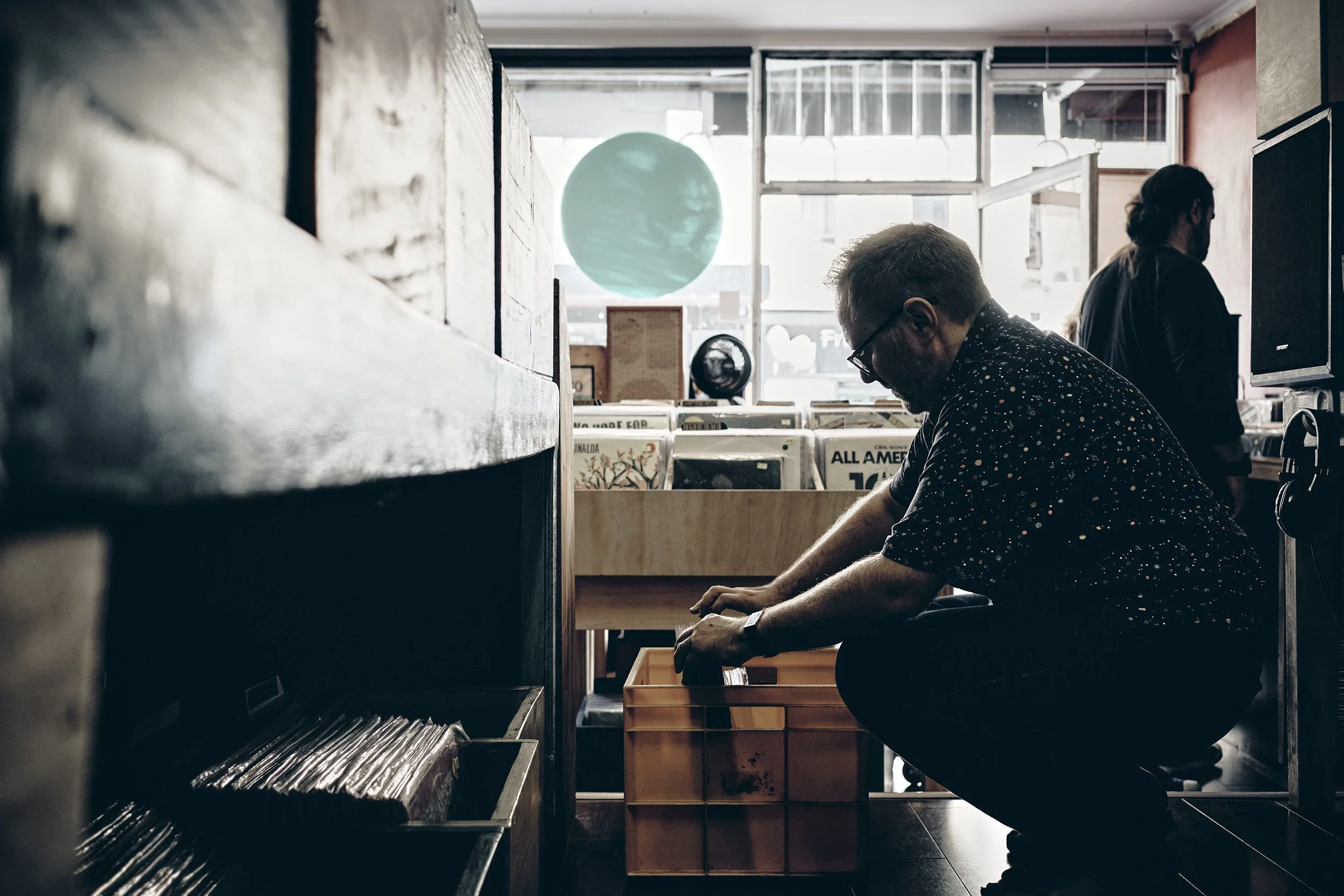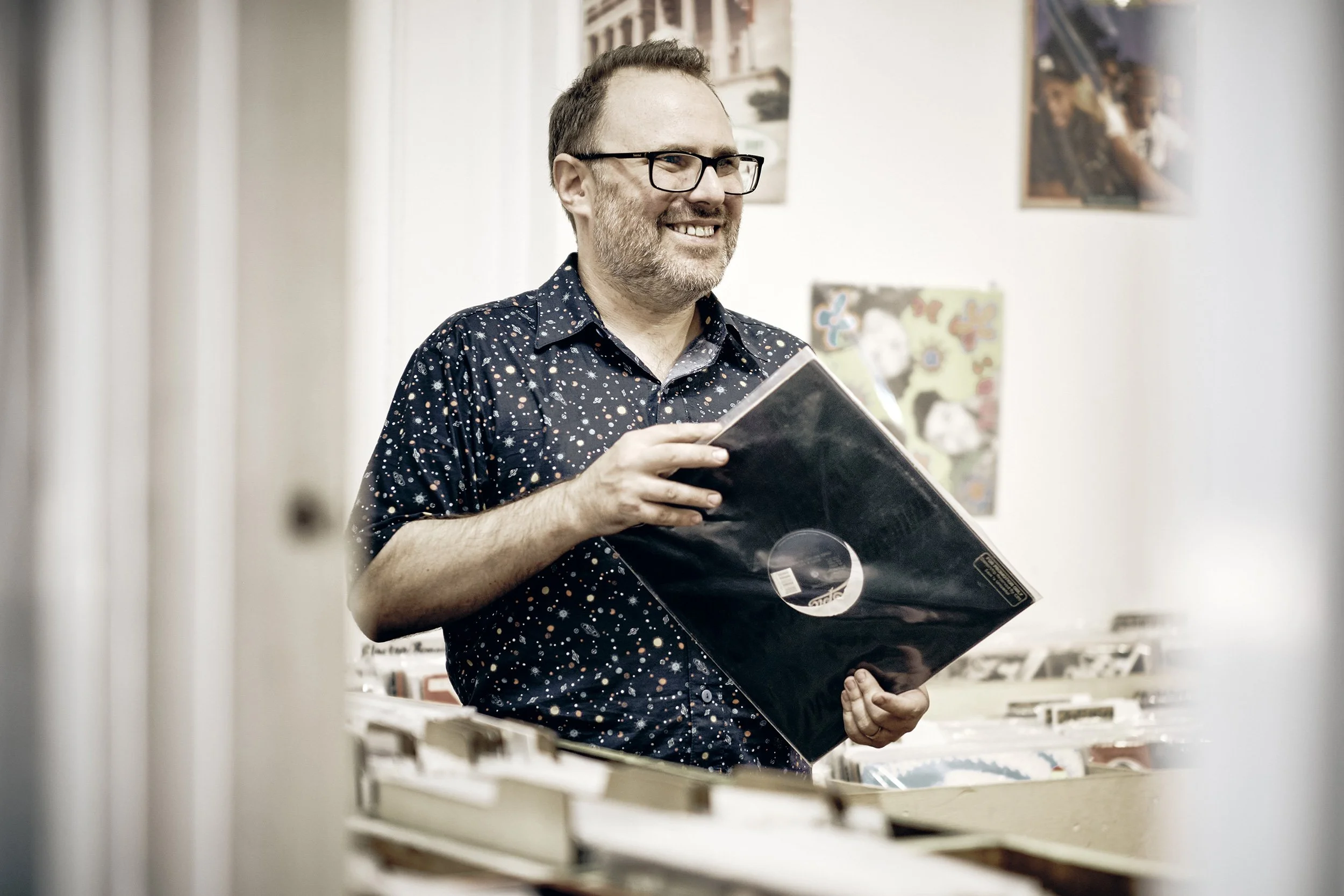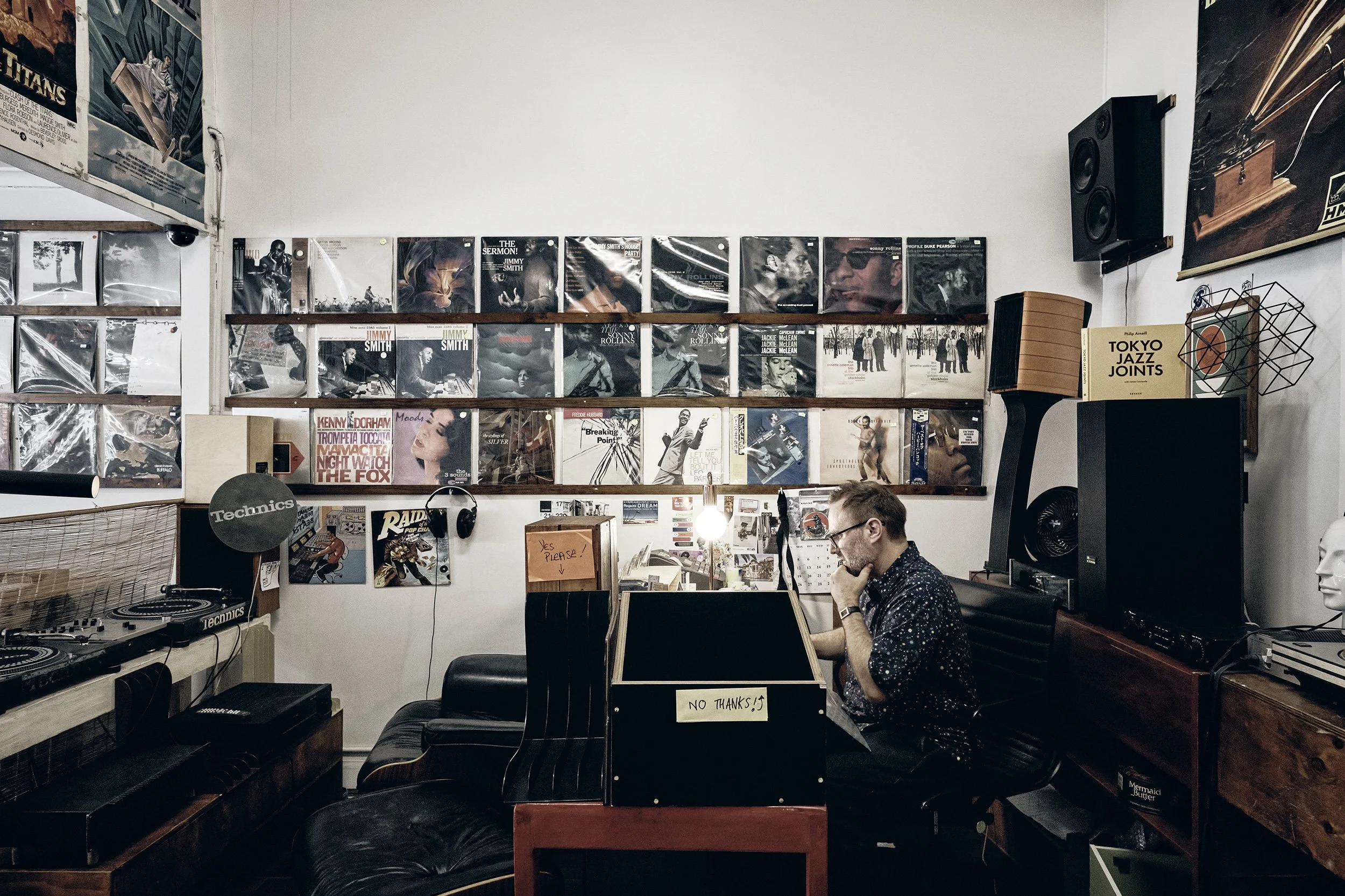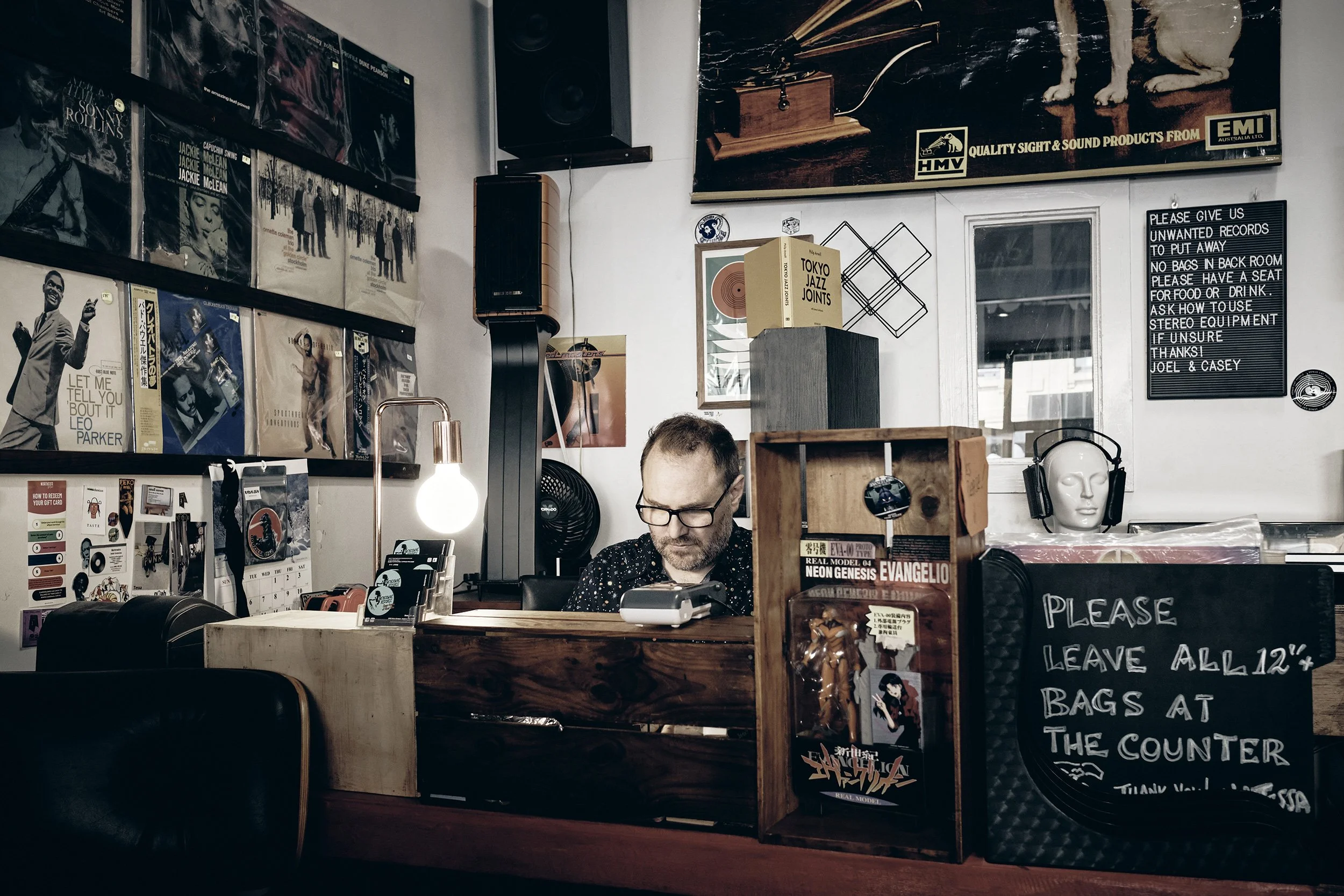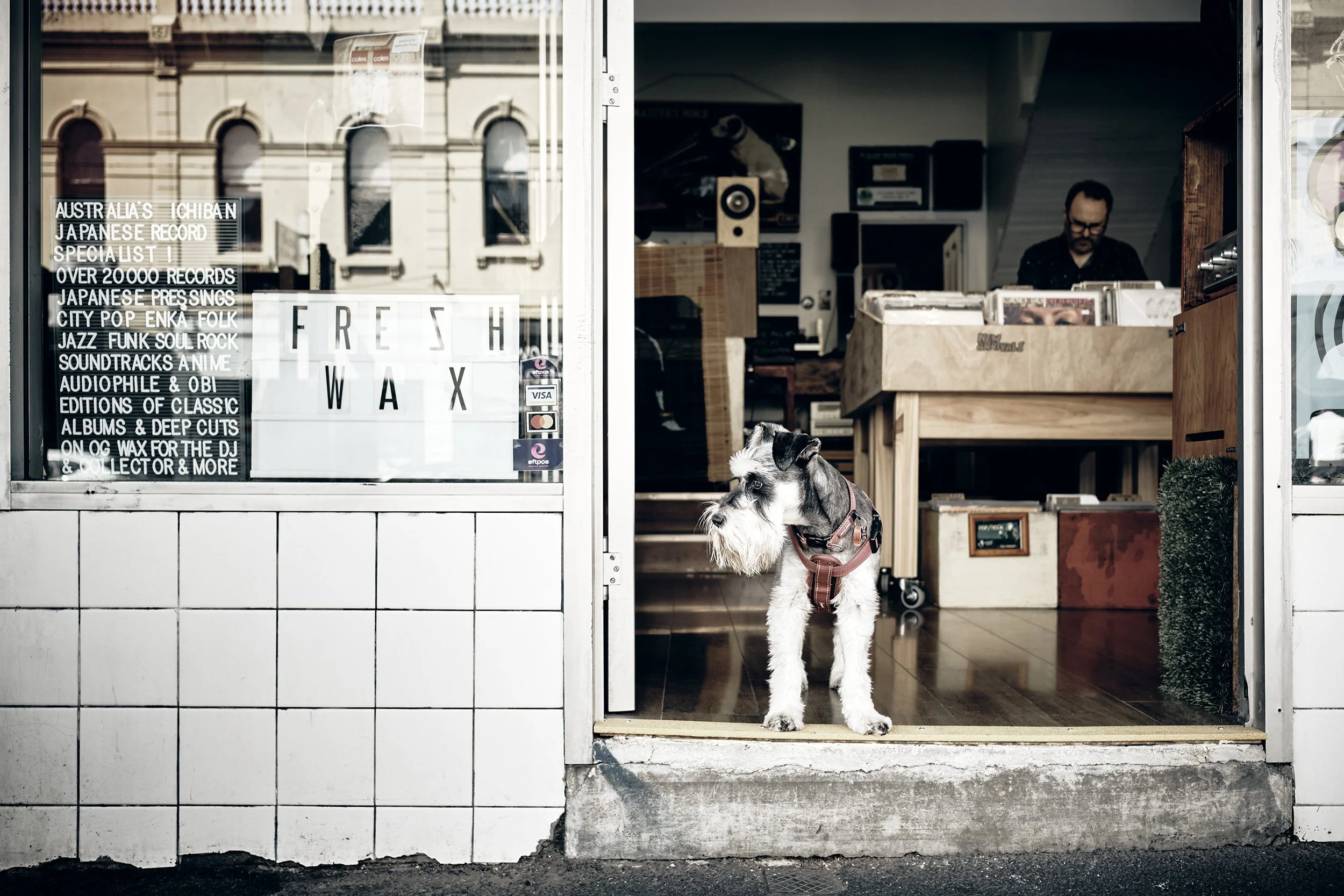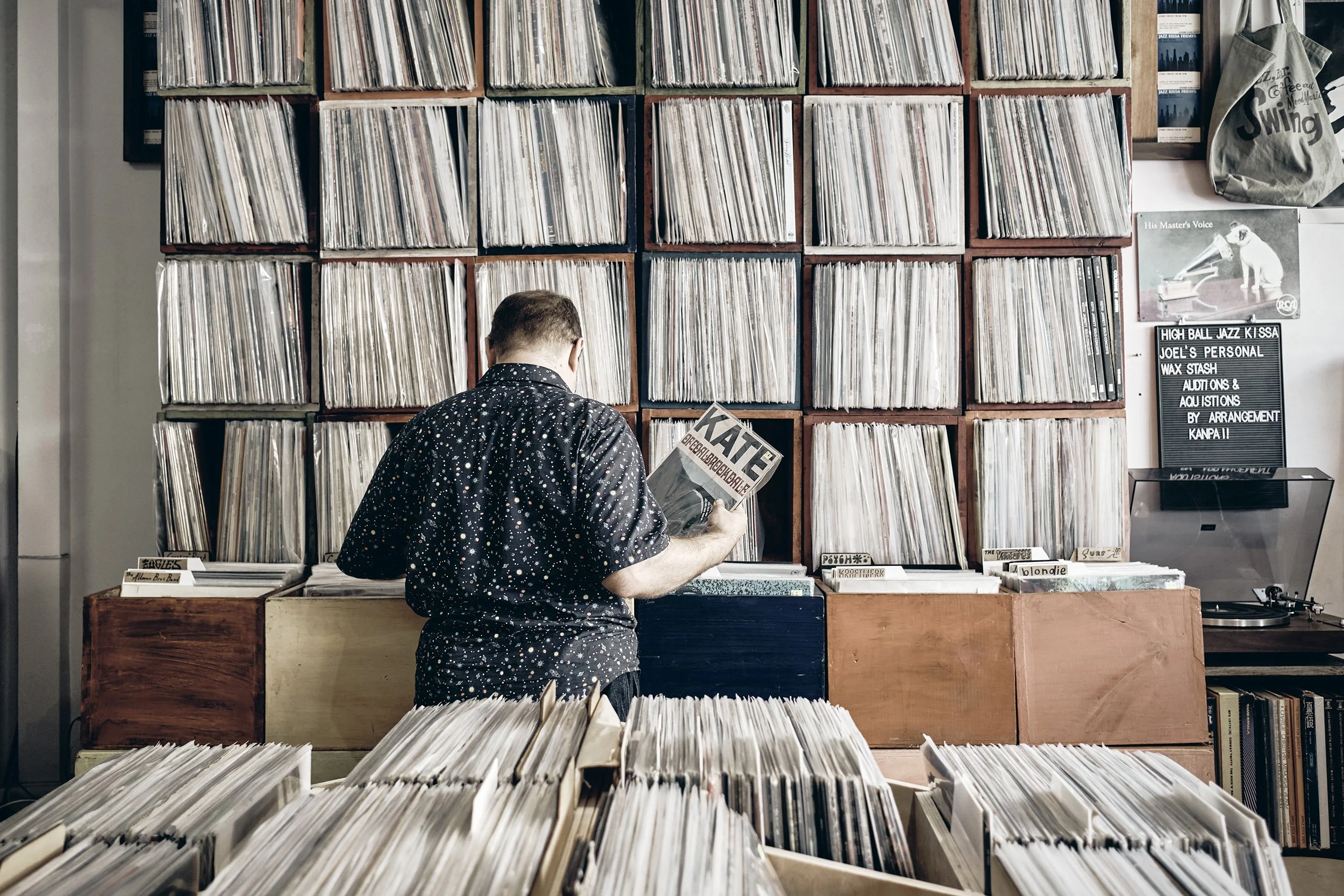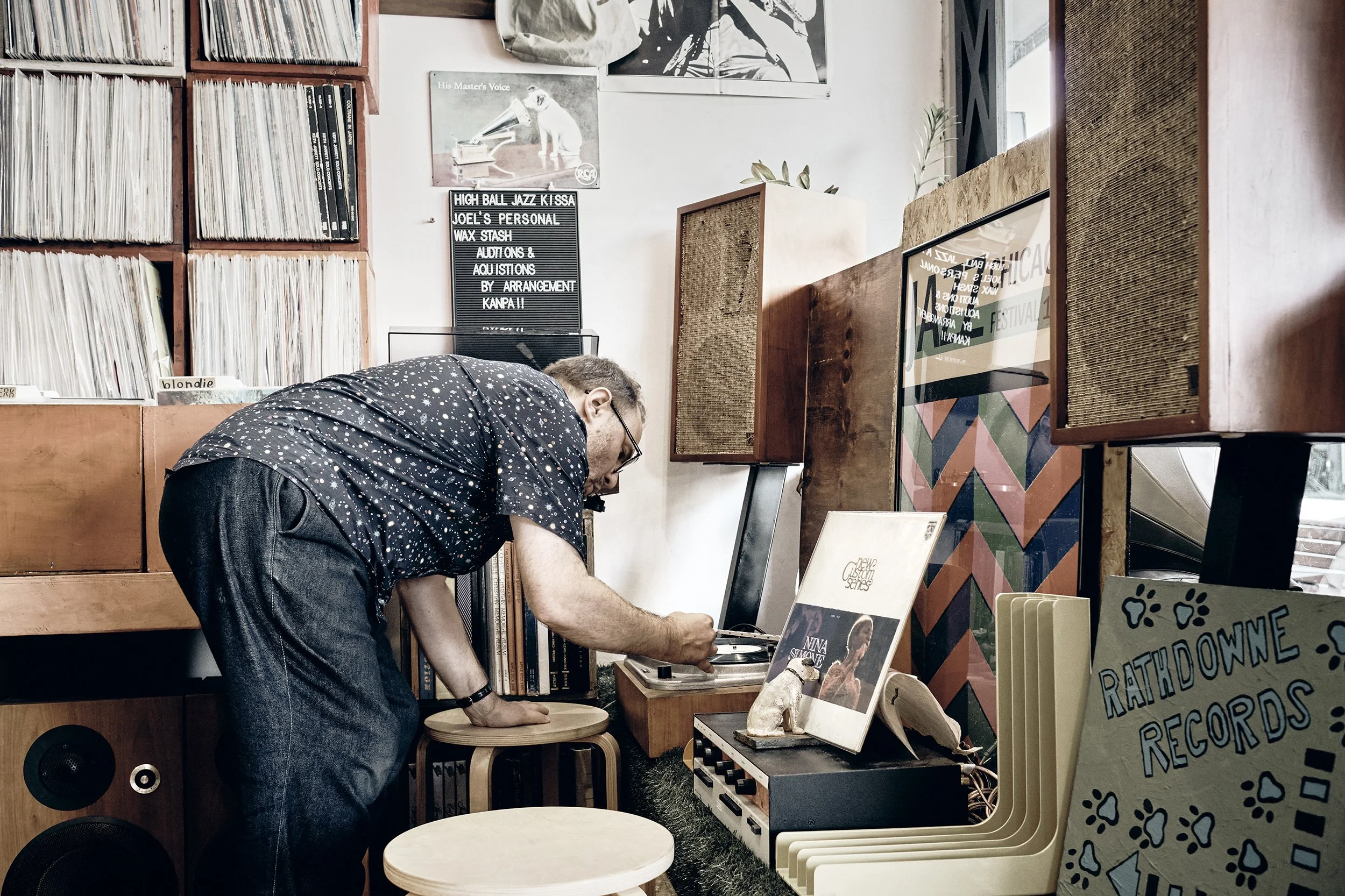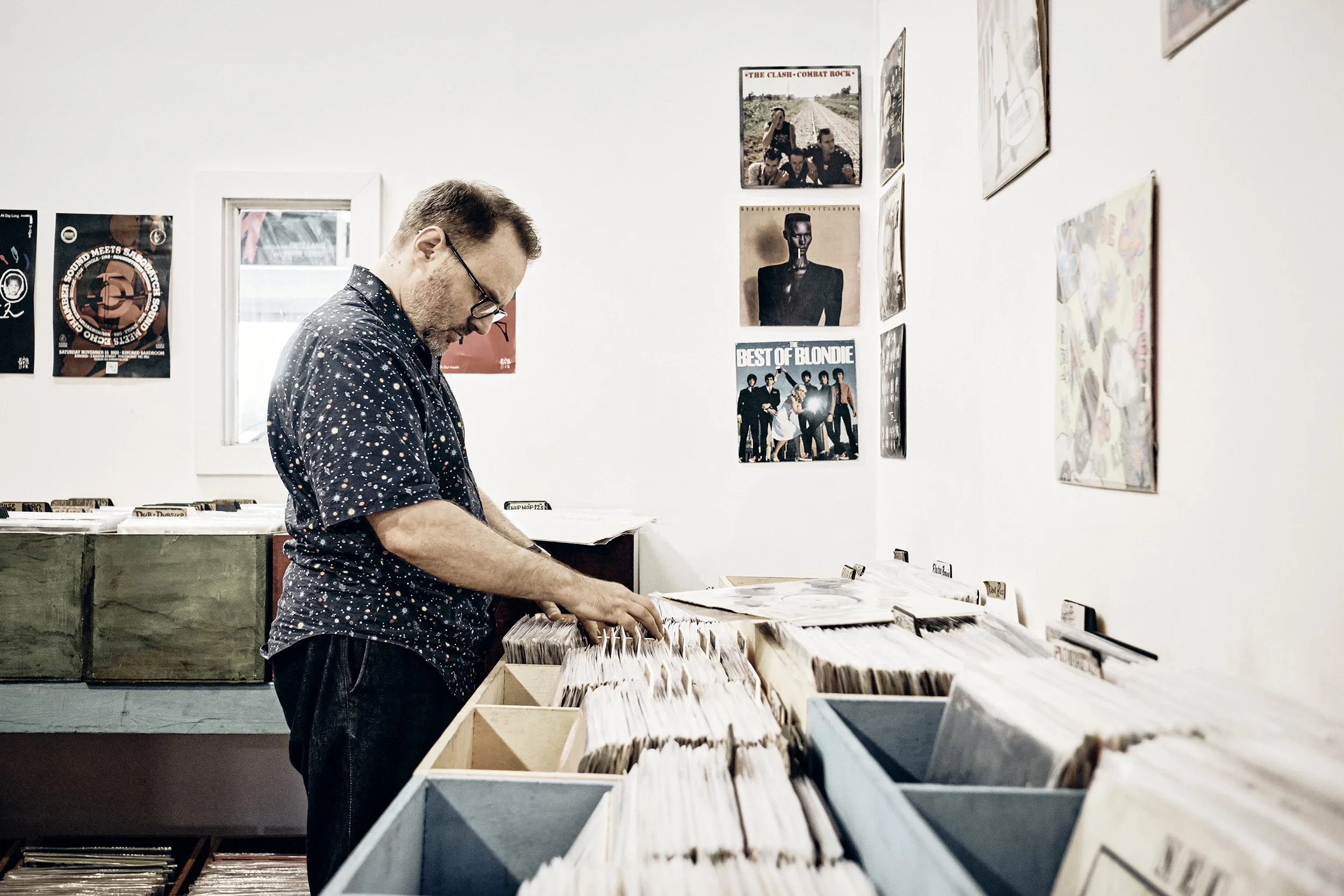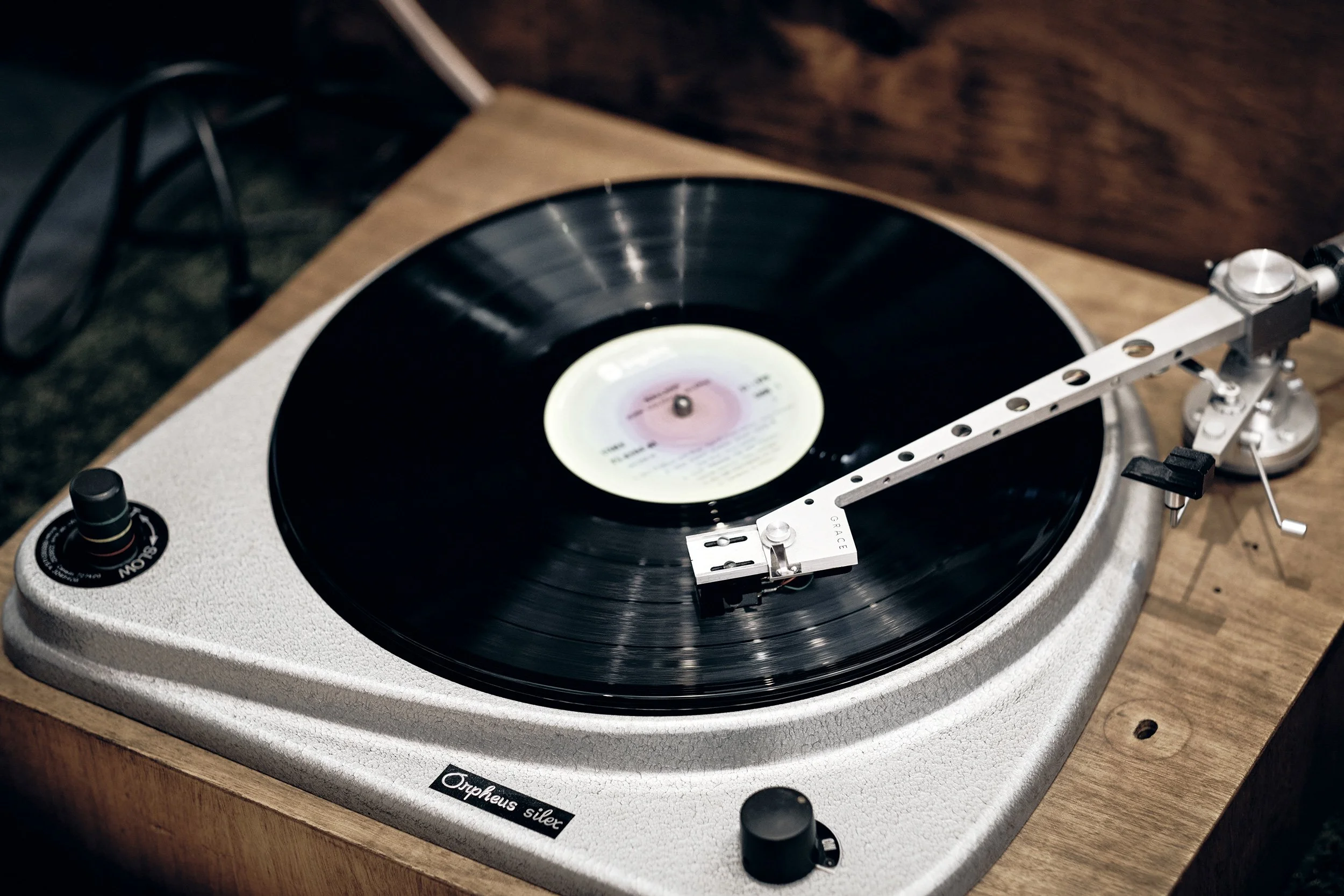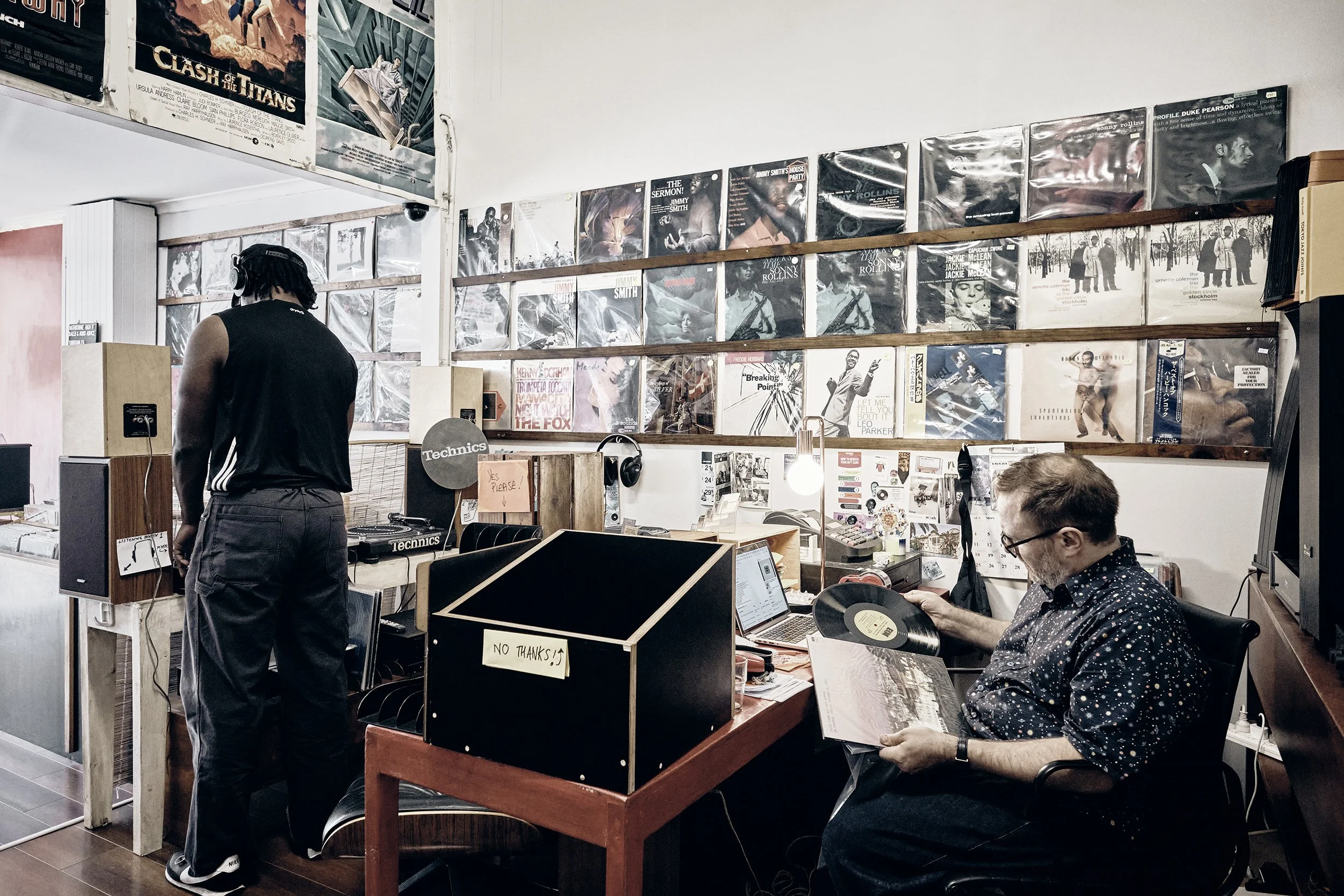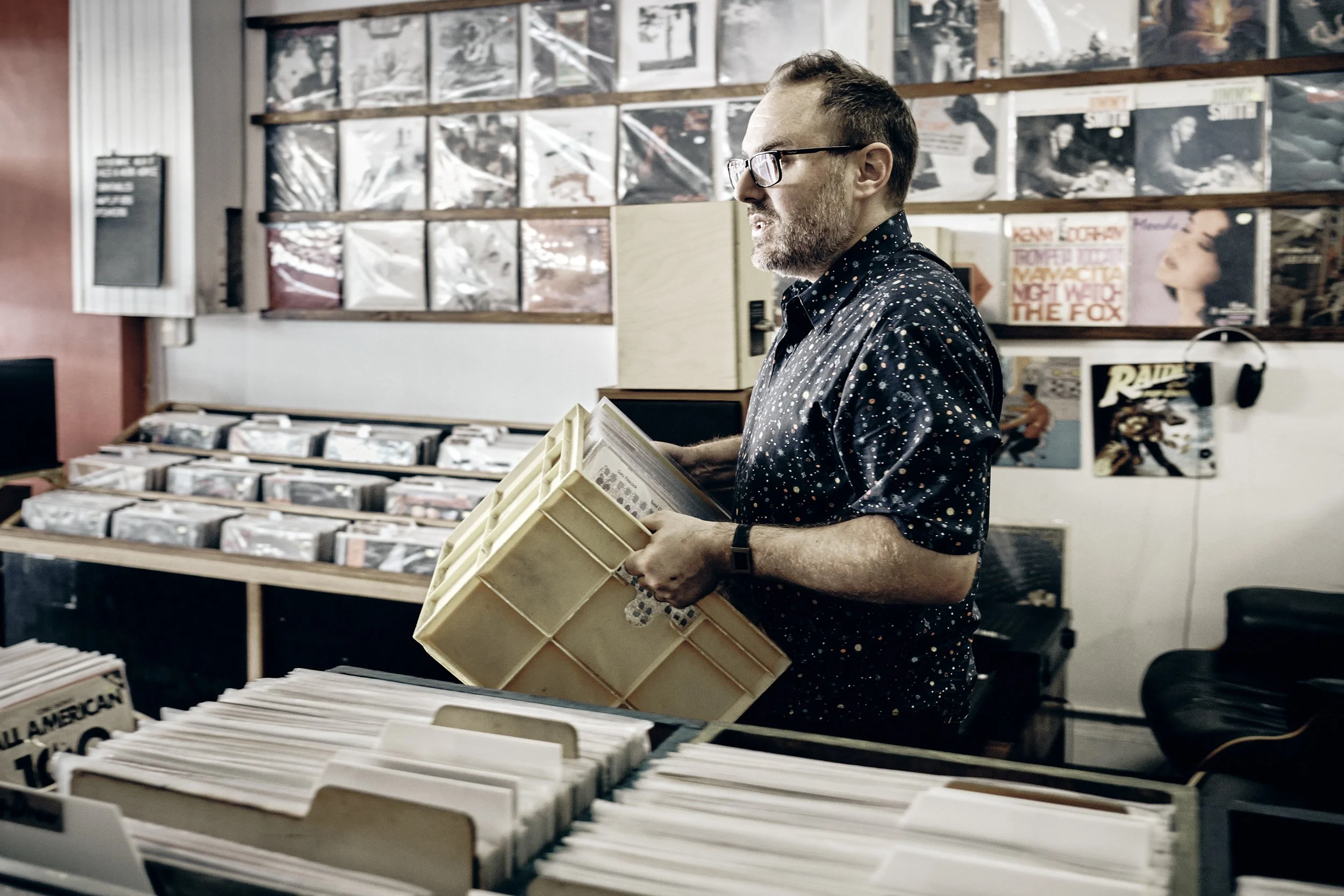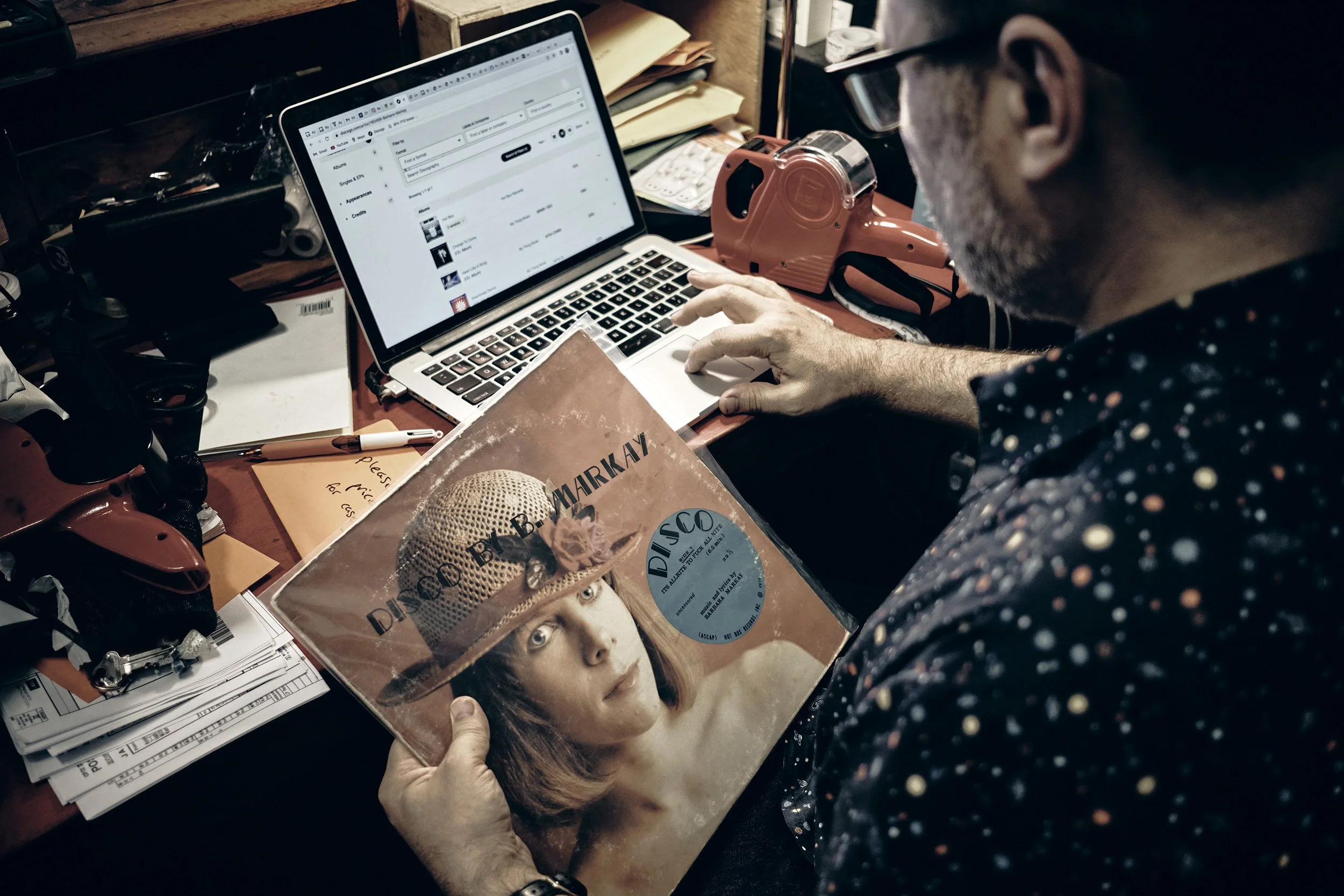Reason #9 / Joel Shortman / Rathdowne Records
WAXing lyrical…
Scroll ↓
Joel Shortman / Rathdowne Records
Nestled amongst bustling High Street in Northcote, a trendy inner-city suburb of Melbourne, recently hailed as the "coolest street in the world" by Time Out Magazine, you'll find Rathdowne Records - a renowned destination for vinyl record enthusiasts.
Joel Shortman, former owner of Small Screens, a video rental store, rebranded his business as Rathdowne Records a decade ago. With movie rentals declining, he transformed his store into a physical haven for vinyl record enthusiasts. His shop boasts a collection of over 20,000 pre-owned vinyl records, appealing to new and seasoned enthusiasts.
Five years ago, I inherited my late father's turntable, sparking a newfound passion and renewing my interest in music. In 2020, I stumbled upon Rathdowne Records and met Joel, the owner. His love for music and fascinating life story captivated me.
The following images were taken on February 20, 2024.
'Playing a vinyl record becomes a deliberate and immersive experience, allowing me to connect with the music in a way that digital formats cannot replicate...'
- Joel Shortman
Joel Shortman has, so far, amassed an impressive 32,800 posts on his business Instagram page @rathdownerecords.
'You can find influencers who have posted less than me,' he says.
The 45-year-old record store owner prefers using social media instead of having a website for his online presence.
It would take him far too long to upload thousands of individually graded and priced second-hand albums to an online web store. He already has a backlog of around 8,000 recently arrived records, which he primarily sources from Japan.
Instead, he relies heavily on Instagram and Facebook for marketing.
Ironically, he leverages these digital platforms' immediacy to sell an old-school analogue medium.
His social media posts offer his followers a sneak peek into his latest "arrivals," with posts of album covers posted multiple times a day.
His customers often reserve a featured album by commenting or sending direct messages through the social media platform. Then, they come to "click and collect", discover more gems in-store, and with an impulse to buy, frequently leave with more albums than they had initially planned.
This strategy, attracting people to the store, is either a fortunate outcome or a cunning business strategy. Either way, the brick-and-mortar store is worth a visit just for its eclectic nature.
The shop reflects Joel's unique individual tastes as if it were his personal man cave; amongst all the records, it is a mishmash of his creatively assembled hoards.
The walls feature a carefully curated collection of "collectable" albums and music posters. Records are organised in genres in multicoloured wooden crates at waist level and on the floor across two rooms.
Every nook and cranny of the store has bits of vintage and hand-made furniture, turntables, speakers and amplifiers.
Around his desk sits a vintage lamp Joel uses to check the condition of individual records, a Neon Genesis Evangelion toy from a Japanese Anime series on display, and a book he recently acquired in Japan—"Tokyo Jazz Joints."
He has a fondness for signs and slogans.
Phrases such as: "Fresh Wax," "Australia's Ichiban Japanese Record Specialist," and "Joel's personal wax stash" are scattered throughout the store.
Joel: 'I think sharing and valuing vintage items such as furniture and other classic pieces is wonderful. Vintage items can lend a distinguished look to a space and can be creatively assembled. Like this lamp, each item can hold its own significance in a space.'
There is also Tessa, the shop dog.
Joel: 'She holds a special place in our hearts. Tessa came into our lives as a gift just after we lost our previous dog. She's a Schnauzer and has become the face of our shop. She loves greeting people, staying close by, and basking in all the attention.'
Before Rathdowne Records, Joel ran a video rental store called Small Screens in Carlton, a few suburbs away, on Rathdowne Street, which inspired the name of his current business.
Joel's entrepreneurial journey began at age 18 as a video store employee and manager. But, he grew tired of working for someone else.
His mother owned a children's bookstore, and when she started complaining about the slow business, he decided to help by extending the opening hours and renting movies as a side hustle.
He specialised in children's and family films, and thanks to the connections from his previous job, he had access to a wide range of movies.
Growing up in North Carlton, Joel discovered his talent for languages. He studied English and history at university, majoring in French and cinema.
Then, he spent four years working as a copywriter for Umbrella Entertainment, a film distribution company.
As a copywriter, he often wrote the back covers of DVDs. This involved rephrasing and editing the synopsis and other promotional materials to make them more suitable for English-speaking audiences.
In addition, he also undertook tasks related to acquiring and releasing films for the company. This involved researching potential movies, negotiating rights, and deciding which films to release.
Joel simultaneously ran his video/DVD shop, using the money he earned from his paid job to support his growing business. After his mother's bookstore business declined, he took over the store.
He also started selling film posters, but he began selling records instead when the original film posters became too expensive and took up too much storage space.
In his formative years, Joel's love for music was inspired by his father, an immunologist with a deep passion for music.
Joel: 'My father played music in our home often and listened to classical, jazz, blues, and contemporary sounds influenced by the Woodstock era.'
His brother further influenced his musical preferences, introducing him to artists such as Bananarama, The Bangles, and David Bowie.
Joel: 'My personal music collection started with cassettes. My brother made me a mixtape for my seventh birthday. My dad had a phenomenal hi-fi system, but I had a cheap cassette player. Having my own player made it feel more special because it was mine.'
When he eventually acquired his first record player, he realised that building a substantial collection would be costly. So, he set a rule of spending at most $20 on a single record.
This self-imposed boundary allowed Joel to steadily grow his collection and forge connections with people who trusted him to sell their records on consignment in his store.
Making the transition from movies to music, Joel moved from Carlton to Northcote ten years ago. The new shop was much larger, and being a double-storey terrace, he and his wife could live upstairs.
His wife Linda is a costumier and dressmaker who runs her business "out the back." She jokes that "her space" keeps getting smaller as Joel spreads his business further into the shop.
So why does Joel think vinyl records have made a resurgence?
Joel: 'Vinyl's resurgence doesn't surprise me at all. First, vinyl offers a unique and tangible experience that digital formats cannot replicate. Many people are drawn to the physical aspects of records, the cover art, the tactile experience of handling a record, and the distinct sound quality.'
'Vinyl records have become a symbol of authenticity and nostalgia in the digital age. It represents a way to disconnect from technology and immerse oneself in the music.'
He also thinks it reflects a broader cultural shift toward appreciating vintage and retro experiences. Vinyl's community aspect, including record stores and collectors, has contributed to its resurgence. People enjoy the sense of community and camaraderie that comes with being a part of the vinyl culture, from browsing records in a store to sharing recommendations with fellow enthusiasts.
Joel: 'I believe people curate their activities as part of their identity. The purpose of a bio is to express passions and what makes an individual unique. When I was growing up, the concept of being "cool" had gatekeepers. Nowadays, there's no fixed definition of what's cool.'
'Playing a vinyl record becomes a deliberate and immersive experience, allowing me to connect with the music in a way that digital formats cannot replicate...'
Vinyl enthusiasts argue that the sound quality of vinyl records surpasses that of digital formats. Does Joel think there's a noticeable difference?
Joel: 'Yes, the bass reproduction is slightly exaggerated on vinyl in a very satisfying way, and the sound is broader with a better sound stage.’
‘Investing in quality audio systems plays a significant role in getting the best sound from them. It is satisfying to compare different systems and appreciate the unique characteristics of each. When you hit that perfect combination, it's like heaven, and you have something physical to show for it.'
Speaking of sound systems, I ask him about his current favourite turntable.
Joel: 'It's a sleeper - an Australian-made turntable by Orpheus Silex. It was originally built in 1956 in Essendon by a garage engineer. The unique three-point setup, the suspended design, and the platter's weight make it finely calibrated and suitable for professional use. It was even adopted by the ABC Radio studios back in the day. Its aesthetic is classic and sleek, and it performs exceptionally well.'
Ironically, a few weeks later, during our interview, Joel revealed that the unit had developed an issue and had been sent off for repair.
So why just second-hand records (versus new)?
Joel: 'As more record stores open in Melbourne, I'm now unique in that I'm completely second-hand, and it's freed me to go deeper into 20th-century records. It's hard to find the 90s onward music at a good price on vinyl, as it was never formatted that way. However, music always intended for vinyl is abundant and in greater quantity.'
'Other stores can press re-order for new repressed albums, but for me, between Miles Davis/Kind of Blue (beginner's choice), there would be 8 other Miles Davis albums (for the enthusiasts) that I'll come across that other stores will never have.'
Joel's most valuable addition was finding a supplier from Japan, as fewer and fewer local people were selling off their good collections. Finding the same records but in better quality and an even more exciting mix of genres has been a game changer.
Collectors often covet the quality of Japanese pressings because they are deemed superior. Japanese pressings use pure vinyl rather than the recycled vinyl commonly used in Western pressings. This results in quieter vinyl and a more enjoyable listening experience from a sonic perspective.
So what is it about Japan for Joel?
Joel: 'In my 20s, my girlfriend was Japanese, and I was into Japanese cinema and samurai movies. She curated our perfect Japanese holiday, and I loved the food. I fancied calling myself "DJ Kurosawa" at my store because I had good cuts and wipes, but "DJ Jazzy Joel" stuck.'
He thinks Melburnians are discovering cultural similarities in Japan and are increasingly seeking more profound cultural experiences, particularly in food.
Joel: 'People are learning much more from Japan rather than just Europe, and this ongoing cultural maturity is becoming evident. Australia started this journey later, but now we fully embrace it and blend different cultural influences, including music.'
'I've discovered new musical genres in Japan, like Japanese jazz, anime soundtracks that need to be properly represented, and I stock them in my store.'
Joel is fascinated by the Japanese-centric art of taking an idea, refining it, and crafting it as much as possible, like their bars and cafes.
Joel: 'The people are proud and perfectionist about it - where the bottom line is not strictly financial - they appreciate the craft in a cultural/retail environment.'
So, what does a typical day look like for Joel?
Joel: 'The process is muscle memory now. I know I will have a delivery from Japan today, which takes us to the start of the curve. I get the boxes delivered, open them, sleeve them, do anything I need to do to improve their appearance, clean them, and take any stickers off. Once that's done, they are divided into key genres. Every day of the week, I try to focus on a genre, listen to each one, and check their value through Discogs and eBay Auctions.'
'My current run rate (of grading and pricing up) is 180-260 records a week.'
With over 8000 in unpriced stock, it will take him almost a year to get through them…
So why hold so much stock?
Joel: 'If you're not going to get rich by higher margins, it's got to be by volume, continuously plugging holes, and having it grow. It's there for longevity.'
'In this financial climate, things need a little push. So, I have a sticker system that tells me where I've priced items on the price scale. The white stickers indicate a fair price, which is already cheaper than most other stores.'
'The yellow stickers indicate that I've already discounted them by $5, so they're not price negotiable.'
So, what keeps Joel going?
Joel: 'Unboxing a new set of records always fills me with excitement, whether to uncover something completely fresh or rediscover an old favourite. It's fuel, and as long as you keep the kindling alight, it will reignite again and again. I'd have to be properly depressed to not be into my job...'

